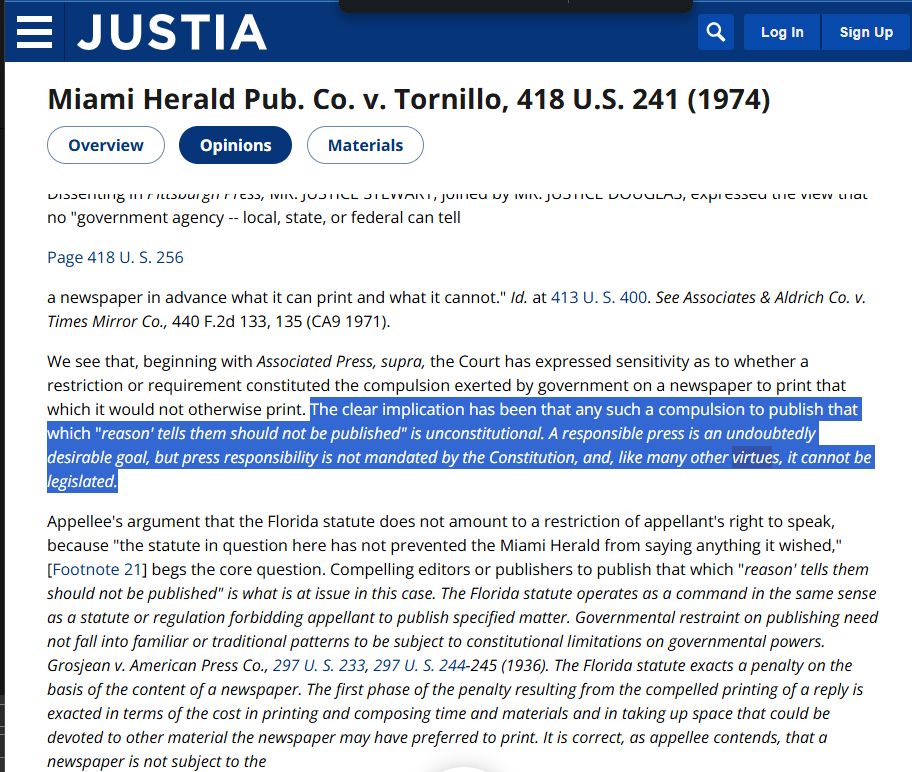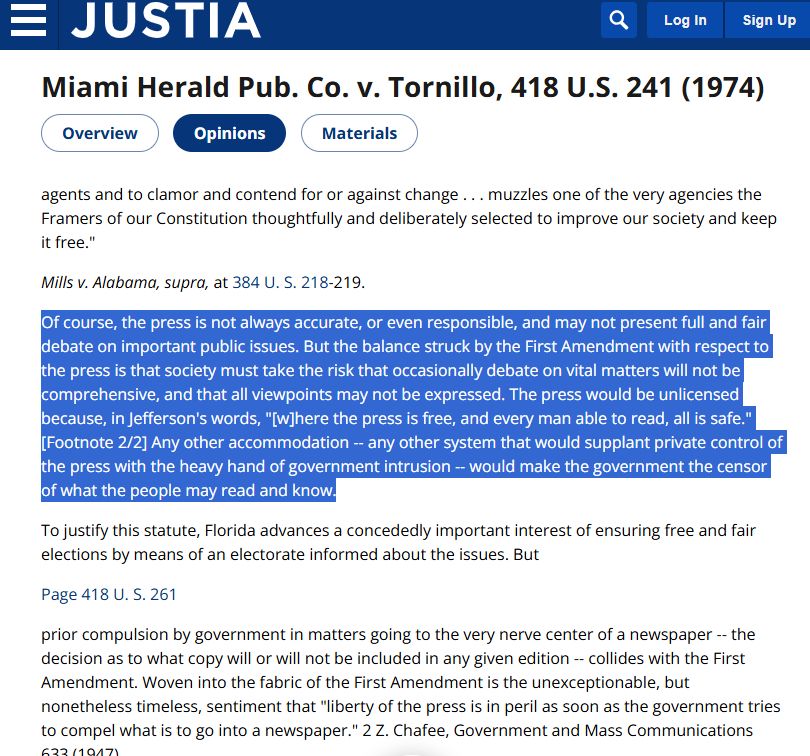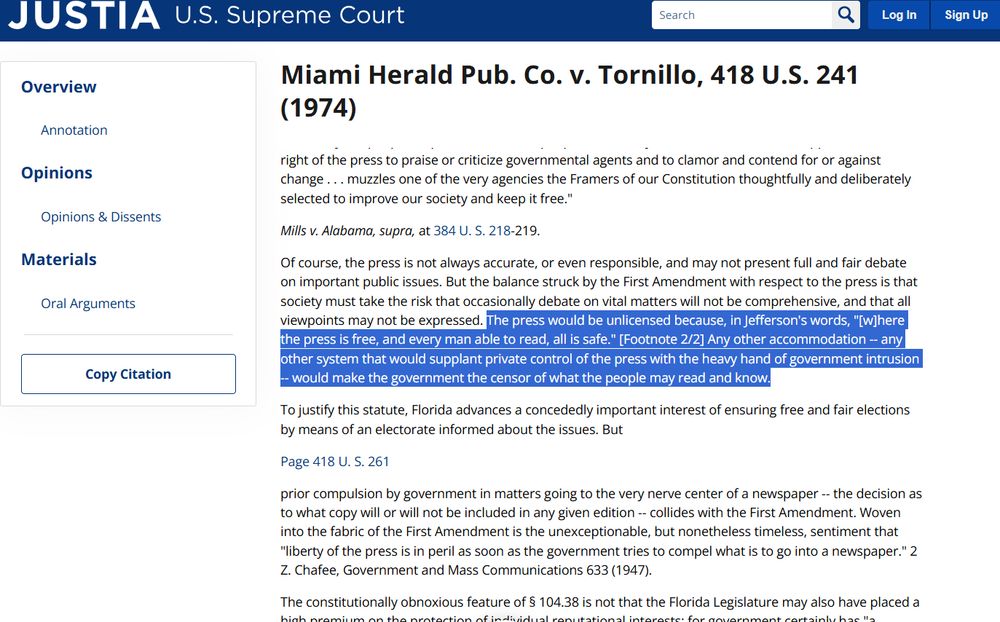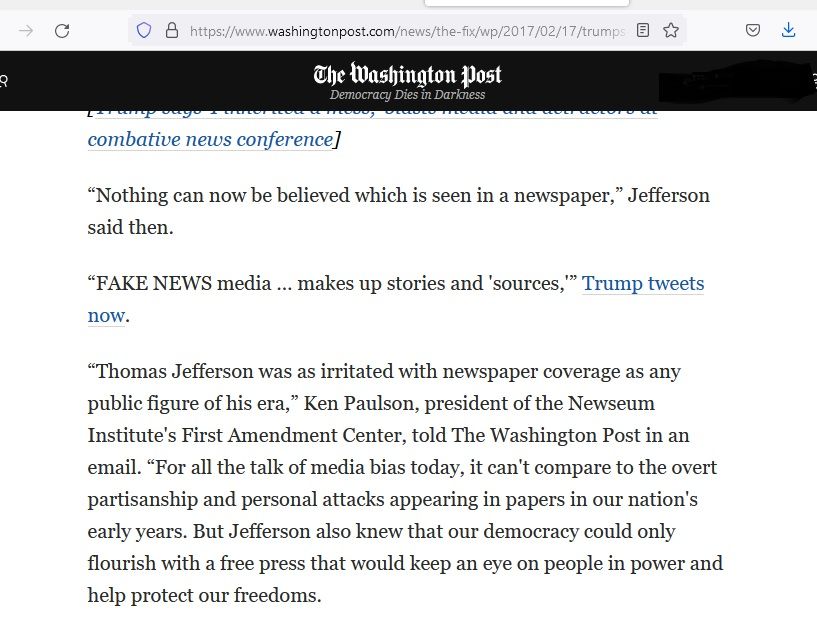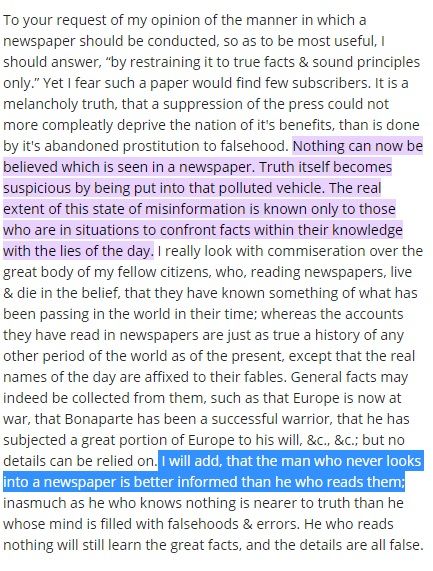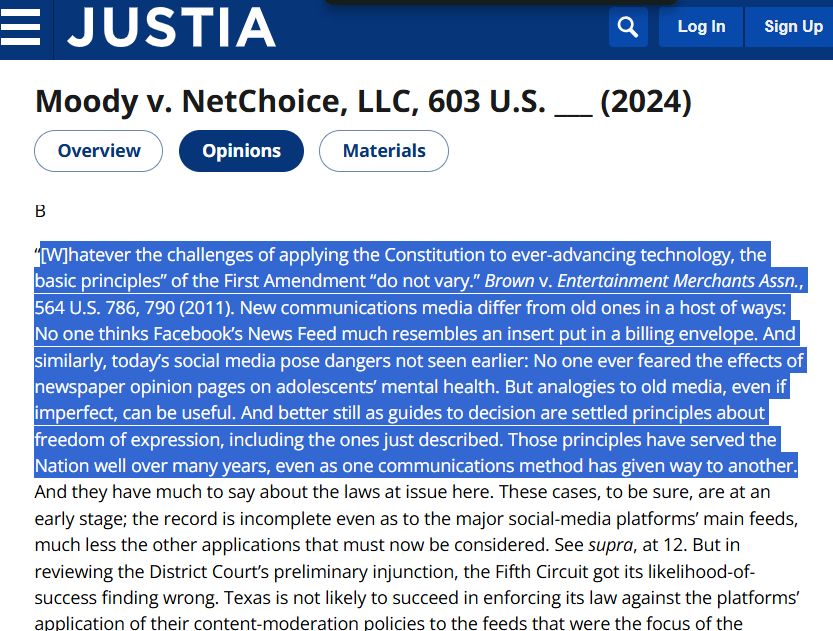As SCOTUS said in Miami Herald v. Tornillo, the press (in that case newspapers) do lie, but 1A prohibits gov't regulation of the press.
Replies
Further, in US v. Alvarez, SCOTUS held that 1A does protect false speech, unless it falls into long-standing exceptions like defamation, because to do otherwise would give the gov't too much power that they could abuse. Shit, Trump would definitely abuse it with the "fake news" outlets he hates.
The only brainless thought is that "news media" has lesser 1A rights than any other media or private entity. In Netchoice v. Moody and other cases, SCOTUS has made clear that they all have the same 1A rights, subject to limited exceptions. And there is no "news media" exception.
Wrong. Media do have different standards than everyone else. Without those standards, the media becomes nothing but a propaganda machine, which is exactly what the US legacy media have become.
No, I'm absolutely correct. The media does NOT have different legal standards than everyone else does. I've pointed out the cases that make that clear. Plus, when 1A was ratified, the media was just as much as a "propaganda machine." It was just as biased and full ...
of misinformation as it is now. Thomas Jefferson famously complained that the well-informed citizen was one who DIDN'T read the newspapers. But he completely defended 1A prohibiting prohibition of the media.
In Jefferson's time most people who weren't wealthy landowners could barely read, and had minimal access to any sort of news that wasn't local. Times have changed a lot, though the education level of americans has returned nearly to the colonial times.
Otherwise no republican would get elected anywhere...
In Jefferson's time, only the wealthy landowners could vote. So your comment is irrelevant. Further, I was showing that 1) the "loophole" that you claimed existed (that cable channels were not regulated) applied to newspapers then and 2) the "news media" is not subject to different 1A standards.
To the extent that media outlets apply journalistic ethics or standards (which really only came about in the early 20th century), they have always done so voluntarily. The gov't has never placed such ethical rules on them. Because as a very liberal SCOTUS said, 1A prohibits it.
The liberal Justice Kagan also made clear last summer that even when technology and the media changes, 1A protections for them do not.


